Fact:
On April 3, 2017, the day Vladimir Putin was due to visit the city, a suicide bombing was carried out in the St. Petersburg metro, killing 15 people and injuring 64. An al-Qaeda affiliate, Imam Shamil Battalion, claimed responsibility.
Abdul Alim Musa is an African American Islamist preacher and the imam of the Al Masjid Mosque in Washington, D.C.Ryan Mauro, “As-Sabiqun / Masjid al- Islam,” The Clarion Project, April 6, 2013, http://www.clarionproject.org/analysis/sabiqun-masjid-al-islam. He is a convert to Sunni Islam but has been publicly supportive of Shiite Iran,Nan Rubin, “Campus Profile: Amir Abdul Malik Ali,” Political Research Associates, accessed May 29, 2015, http://www.politicalresearch.org/campus-profile-amir-abdul-malik-ali/#sthash.oeXcyUw3.dpbs. as well as Iranian-backed terror groups Hamas and Hezbollah.“Imam Musa on Hannity,” YouTube Video, 00:57, Posted by “mjohnson202,” October 3, 2007, https://www.youtube.com/watch?v=1QdFyRsvnm0. Among other extremist beliefs, Alim Musa holds that Zionist American proxies blew up the World Trade Center, Palestinian suicide bombers are “heroes,” and that the U.S. government introduced heroin to U.S. cities in the 1960s to undermine the “blacks’ rebellion.”Dan Morse, “Case Against Ex-Guard Brings Scrutiny of D.C. Imam,” Washington Post, September 19, 2007, http://www.washingtonpost.com/wp-dyn/content/article/2007/09/18/AR2007091802154.html. In 2009, the U.K. banned him from entering due to his “glorifying [of] terrorist violence in furtherance of his particular beliefs and seeking to provoke others to terrorist acts.”“Who is on UK 'least wanted' list?,” BBC News, May 5, 2009, http://news.bbc.co.uk/2/hi/uk_news/8033319.stm.
Born in Arkansas in 1945, Alim Musa grew up in Oakland, CA. He became involved in the drug trade and operated briefly out of Colombia where he was arrested on charges of heroin smuggling. He was incarcerated at the U.S. Federal Penitentiary in Leavenworth, Kansas where, according to Musa, he converted to “traditional orthodox Islam.”Dan Morse, “Case Against Ex-Guard Brings Scrutiny of D.C. Imam,” Washington Post, September 19, 2007, http://www.washingtonpost.com/wp-dyn/content/article/2007/09/18/AR2007091802154.html.
Today, Alim Musa directs As-Sabiqun (“the Vanguard”), from the Al Masjid Mosque.Nan Rubin, “Campus Profile: Amir Abdul Malik Ali,” Political Research Associates, accessed May 29, 2015, http://www.politicalresearch.org/campus-profile-amir-abdul-malik-ali/#sthash.oeXcyUw3.dpbs. As-Sabiqun is an American Muslim organization whose “current mission, inside and outside of the U.S. is to struggle to neutralize the efforts of the top three enemies of our global Ummah, which together constitute the Triangle of Terror, [the U.S., Israel, and Saudi Arabia].”“Imam Musa’s Upcoming ‘Eid Message,” As-Sabiqun Blog, August 17, 2012, http://sabiqundc.blogspot.com/2012/08/eid-mubarak.html. As-Sabiqun advocates for a global Islamic state under sharia (Islamic law) and seeks to abolish all “man-made” governance.“Sabiqun and Anti-Semitism on Campus,” Anti-Defamation League, September 11, 2009, http://archive.adl.org/main_anti_israel/sabiqun_anti-semitismc089.html#.VWhmbM9Viko. It has reportedly endorsed the Palestinian terrorist organization Hamas.“Masjid Al Islam,” The Clarion Project, April 6, 2013, http://www.clarionproject.org/category/tags/masjid-al-islam-0#_ftn1.
As-Sabiqun reportedly seeks to become “one of the main suppliers of Islamic books, media, fragrances, and other products in the United States” and speak out “against the injustices perpetrated locally and globally by Zionists and imperialistic governments.” The organization reportedly operates branches in Los Angeles, San Diego, Sacramento, and Philadelphia, with its most active branches believed to be in Oakland, CA and Washington, D.C.Nan Rubin, “Campus Profile: Amir Abdul Malik Ali,” Political Research Associates, accessed May 29, 2015, http://www.politicalresearch.org/campus-profile-amir-abdul-malik-ali/#sthash.oeXcyUw3.dpbs; “Sabiqun and Anti-Semitism on Campus,” Anti-Defamation League, September 11, 2009, http://archive.adl.org/main_anti_israel/sabiqun_anti-semitismc089.html#.VWhmbM9Viko. According to his biography on the As-Sabiqun website, Alim Musa has been inspired by the writings of Abul Ala Maududi (an Indian Islamist revivalist and founder of Jamaat-e-Islami), Hassan al-Banna (founder of the Muslim Brotherhood), Sayyid Qutb (the Muslim Brotherhood ideologue and inspiration to numerous modern terror groups), and Ruhollah Khomeini (founder of the Islamic Republic of Iran).”“Imam Musa’s Upcoming ‘Eid Message,” As-Sabiqun Blog, August 17, 2012, http://sabiqundc.blogspot.com/2012/08/eid-mubarak.html.
Musa’s Al Masjid Mosque in D.C. houses a branch office of the Islamic Institute for Counter Zionist American Psychological Warfare,“Imam Musa’s Upcoming ‘Eid Message,” As-Sabiqun Blog, August 17, 2012, http://sabiqundc.blogspot.com/2012/08/eid-mubarak.html. an institute established to “monitor Zionist and Israeli networks, circles, and clubs which deceitfully infiltrate Muslim and Black groups.”“Sabiqun and Anti-Semitism on Campus,” Anti-Defamation League, September 11, 2009, http://archive.adl.org/main_anti_israel/sabiqun_anti-semitismc089.html#.VWhmbM9Viko. In addition, Alim Musa is reportedly a “senior” member of the Institute of Contemporary Islamic Thought (ICIT), reportedly a transnational pro-Iranian pro-Hezbollah think tank.“Sabiqun and Anti-Semitism on Campus,” Anti-Defamation League, September 11, 2009, http://archive.adl.org/main_anti_israel/sabiqun_anti-semitismc089.html#.VWhmbM9Viko.
Abdul Alim Musa has reportedly participated in events held by mainstream American Muslim organizations such as the Council on American-Islamic Relations (CAIR), the Muslim American Society (MAS), the Islamic Circle of North America (ICNA), and the Islamic Society of North America (ISNA).“Sabiqun and Anti-Semitism on Campus,” Anti-Defamation League, September 11, 2009, http://archive.adl.org/main_anti_israel/sabiqun_anti-semitismc089.html#.VWhmbM9Viko. He is reportedly “particularly popular” with the Muslim Student Union at the University of California, Irvine.“Sabiqun and Anti-Semitism on Campus,” Anti-Defamation League, September 11, 2009, http://archive.adl.org/main_anti_israel/sabiqun_anti-semitismc089.html#.VWhmbM9Viko.
Propagandist, Washington, D.C: Ex-convict who now directs As-Sabiqun (“the Vanguard”) from the Al Masjid Mosque in Washington, D.C. As-Sabiqun is an American Muslim organization whose “current mission, inside and outside of the U.S. is to struggle to neutralize the efforts of the top three enemies of our global Ummah, which together constitute the Triangle of Terror [the U.S., Israel, and Saudi Arabia].” The United Kingdom banned Musa from entering the country in 2008 due to his history of “glorifying terrorist violence in furtherance of his particular beliefs and seeking to provoke others to terrorist acts.” Musa has voiced support for Hamas and claims the Americans, Israelis, and Saudis created ISIS.
Converted to “traditional orthodox Islam” while imprisoned in the U.S. Federal Penitentiary in Leavenworth, Kansas, for smuggling heroin, Musa told the Washington Post.
(No estimated age at conversion)
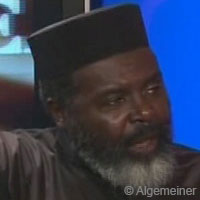
Zakir Naik is an Islamist televangelist who runs Peace TV and is accused of in part influencing the July 2016 Dhaka attackers in Bangladesh to carry out their terrorist attack. Naik follows a conservative brand of Wahhabi Islam and has allegedly expressed sympathy for terrorists.Ishaan Tharoor, “The Saudi king gave a prize to an Islamic scholar who says 9/11 was an ‘inside job’,” Washington Post, March 4, 2015, http://www.washingtonpost.com/blogs/worldviews/wp/2015/03/04/the-saudi-king-gave-a-prize-to-an-islamic-scholar-who-says-911-was-an-inside-job/. He has called 9/11 an “inside job”Zakir Naik, “Indian Muslim Cleric Zakir Naik: 9/11 Was Carried Out by George Bush Himself,” Middle East Media Research Institute, July 31, 2008, http://www.memritv.org/clip/en/1846.htm. and has asserted that apostasy is treason.Ben Hubbard, “Saudi Award Goes to Muslim Televangelist Who Harshly Criticizes U.S.,” New York Times, March 2, 2015, http://www.nytimes.com/2015/03/03/world/middleeast/saudi-award-goes-to-dr-zakir-naik-a-muslim-televangelist-who-harshly-criticizes-us.html?_r=0. In October 2017, India’s counterterrorism agency accused Naik of insulting various religions and recruiting for ISIS.Bharti Jain and Neeraj Chauhan, “NIA charges Zakir Naik for radicalization,” Times of India, October 27, 2017, https://timesofindia.indiatimes.com/india/nia-charges-zakir-naik-for-radicalisation/articleshow/61253230.cms.
Peace TV is a self-described 24-hour Islamic International TV channel with the tagline “The Solution for Humanity.”“Dr Zakir Naik – President, IRF,” Islamic Research Foundation, accessed May 29, 2015, http://www.irf.net/drzakirnaik.html;
“Peace TV,” accessed June 1, 2015, http://www.peacetv.tv/;
“Banned in India, Peace TV Net Buys Berth on TWC in N.Y.,” Multichannel News, April 20, 2015, http://www.multichannel.com/banned-india-peace-tv-net-buys-berth-twc-ny/389891#sthash.wgxEJbRm.dpuf. The Peace TV channel broadcasts from Dubai, Saudi Arabia, and even IndiaIrfan Al-Alawi, “Zakir Naik: ‘Peace TV’’s Calls for Terrorism” Gatestone Institute, July 1, 2010, http://www.gatestoneinstitute.org/1396/zakir-naik-peace-tv-calls-for-terrorism;
Himanshi Dhawan, “No licence to air in India, but no stopping Peace TV,” Times of India (Mumbai), July 7, 2016, http://timesofindia.indiatimes.com/india/No-licence-to-air-in-India-but-no-stopping-Peace-TV/articleshow/53088604.cms. despite being banned in India in 2012.“Government puts 24 foreign 'hate channels' on notice for showing anti-India TV shows after intelligence alert,” Daily Mail India (London), December 5 2012, http://www.dailymail.co.uk/indiahome/indianews/article-2243584/Government-puts-24-foreign-hate-channels-notice-showing-anti-India-TV-shows-intelligence-alert.html#ixzz3bWymCrFU. The United Kingdom and Canada have both banned Naik from entering the country.“Islamist Preacher Zakir Naik, Barred from U.K. and Canada – An Ideological Profile,” The Cyber & Jihad Lab- A MEMRI Project, accessed June 1, 2015, http://cjlab.memri.org/uncategorized/islamist-preacher-zakir-naik-barred-from-u-k-and-canada-an-ideological-profile/. However, Naik continues to speak internationally, including in the United States.Ishaan Tharoor, “The Saudi king gave a prize to an Islamic scholar who says 9/11 was an ‘inside job’,” Washington Post, March 4, 2015, http://www.washingtonpost.com/blogs/worldviews/wp/2015/03/04/the-saudi-king-gave-a-prize-to-an-islamic-scholar-who-says-911-was-an-inside-job/. In May 2015, Peace TV began airing in the United States on Time Warner Cable’s Manhattan system.“Banned in India, Peace TV Net Buys Berth on TWC in N.Y.,” Multichannel News, April 20, 2015, http://www.multichannel.com/banned-india-peace-tv-net-buys-berth-twc-ny/389891#sthash.wgxEJbRm.dpuf.
Peace TV English launched in January 2006 and is believed to be the most watched global religious Satellite TV channel, with approximately 100 million viewers. According to its website, Peace TV is broadcast in more than 125 countries worldwide.“About us,” Peace TV, http://www.peacetv.tv/en-gb/about-us/. The satellite network has expanded with an Urdu channel in 2009, a Bangla channel in 2011, and a Chinese-language channel in December 2015. However, Peace TV was banned in Bangladesh after the July 1, 2016, terrorist attack on a café in the country’s capital, Dhaka, due to reports that some of the attackers may have been inspired by Naik and Peace TV.“Bangladesh to ban Islamic TV channel after Dhaka attack,” Al Jazeera, July 11, 2016, http://www.aljazeera.com/news/2016/07/bangladesh-ban-islamic-tv-channel-dhaka-attack-160711074444953.html.
In 1991, Naik founded the Islamic Research Foundation (IRF) in Mumbai, India, a non-profit that seeks to promote the “proper presentation, understanding and appreciation of Islam.”“Dr Zakir Naik – President, IRF,” Islamic Research Foundation, accessed May 29, 2015, http://www.irf.net/drzakirnaik.html. According to U.K. government documents, the IRF raised approximately $1.7 million in the fiscal year ending on January 31, 2014, and spent approximately $1.56 million on Peace TV.“Banned in India, Peace TV Net Buys Berth on TWC in N.Y.,” Multichannel News, April 20, 2015, http://www.multichannel.com/banned-india-peace-tv-net-buys-berth-twc-ny/389891#sthash.wgxEJbRm.dpuf. Through the IRF, Naik proselytizes an interpretation of Islam that has been accused of being homophobic, misogynistic, anti-Western, and anti-Semitic.Ishaan Tharoor, “The Saudi king gave a prize to an Islamic scholar who says 9/11 was an ‘inside job’,” Washington Post, March 4, 2015, http://www.washingtonpost.com/blogs/worldviews/wp/2015/03/04/the-saudi-king-gave-a-prize-to-an-islamic-scholar-who-says-911-was-an-inside-job/.
The IRF in Mumbai is further accused of incubating terrorist plots. IRF librarian Feroz Deshmukh belonged to a militant Islamist cell that executed the 2006 simultaneous bombings of two trains in Mumbai. His co-conspirators, Rahil Ahmed Sheikh and Zabiuddin Ansari, repeatedly met Deshmukh at IRF offices in Mumbai. All three men are believed to be members of the internationally-sanctioned Pakistani terror group Lashkar-e-Taiba (LeT).Praveen Swami, “Shattered certitudes and new realities,” Hindu (Chennai), July 8, 2007, http://www.thehindu.com/todays-paper/article1868902.ece. LeT includes IRF as an approved Islamic resource on the website of its charitable arm, Jamaat ud-Dawa.Praveen Swami, “Shattered certitudes and new realities,” Hindu (Chennai), July 8, 2007, http://www.thehindu.com/todays-paper/article1868902.ece.
In 2013, Naik was named Islamic Personality of the Year by the prime minister of the United Arab Emirates, Sheikh Mohammed bin Rashid Al Maktoum.“Zakir Naik wins Saudi prize for service to Islam,” Dawn (Karachi), March 2, 2015, http://www.dawn.com/news/1166900. In March 2015, Saudi Arabia’s King Salman bin Abdulaziz al Saud awarded Naik with an International Prize for Service to Islam.Ishaan Tharoor, “The Saudi king gave a prize to an Islamic scholar who says 9/11 was an ‘inside job’,” Washington Post, March 4, 2015, http://www.washingtonpost.com/blogs/worldviews/wp/2015/03/04/the-saudi-king-gave-a-prize-to-an-islamic-scholar-who-says-911-was-an-inside-job/. The United States denounced Naik’s receipt of the award, stating, “The views [Naik] expressed in the past on Jews and 9/11 are reprehensible.”Carol Morello, “U.S. denounces award-winning cleric who called 9/11 an ‘inside job,’” Washington Post, March 6, 2015, https://www.washingtonpost.com/world/us-denounces-award-winning-cleric-who-called-911-inside-job/2015/03/06/aeb3010b-a3d5-4bdd-95f4-11402a8465f1_story.html?utm_term=.5ba38158d38c.
On July 1, 2016, at least five gunmen stormed a bakery in Dhaka, Bangladesh, opening fire and taking hostages in a terrorist attack that left 22 people dead.“Bangladesh attack: Police say hostage mistaken for gunman,” BBC News, July 6, 2016, http://www.bbc.com/news/world-asia-36721091;
Ellen Barry and Maher Sattar, “‘We’ll Grow Again’: Bangladesh Café Attacked by Terrorists Reopens,” New York Times, January 11, 2017, https://www.nytimes.com/2017/01/11/world/asia/bangladesh-terrorist-attack-cafe.html. After the Dhaka attack, reports surfaced that Naik had inspired some of the attackers.“Dhaka Attackers Inspired By Controversial Indian Cleric Zakir Naik, Says Report,” NDTV, July 5, 2016, http://www.ndtv.com/world-news/dhaka-attackers-followed-controversial-indian-islamic-preacher-zakir-naik-report-1428151;
“Dhaka killers followed radical Indian, British preachers,” Hindu (Chennai), July 5, 2016, http://www.thehindu.com/news/national/Dhaka-killers-followed-radical-Indian-British-preachers/article14471086.ece;
“3 terrorists involved in Dhaka attack admirers of Zakir Naik: Home ministry,” Hindustan Times (New Delhi), November 16, 2016, http://www.hindustantimes.com/india-news/3-terrorists-involved-in-dhaka-attack-admirers-of-zakir-naik-home-ministry/story-JSlYfyhyFUaBCTMbjWlVqM.html. In particular, one of the assailants was known to have propagated a statement from Naik “urging all Muslims to be terrorists” on Facebook.“Inspiration for Dhaka attacker came from Mumbai-based preacher Zakir Naik,” FirstPost, July 5, 2016, http://www.firstpost.com/world/two-dhaka-attackers-followed-islamic-state-propagandists-on-social-media-2874300.html.
After the attack, Bangladesh’s government deemed Peace TV inconsistent with the country’s constitution and culture and banned it. “Bangladesh to ban Islamic TV Channel, Peace TV,” BBC News, July 11, 2016, http://www.bbc.com/news/world-asia-36761486. Naik denied that he inspired any terrorist activity and instead asserted that he is aihe iming that terrorist attackspreacher Zakir Naik,"ed the country.issued against the IRF., Bangladesh.and insteadi “messenger of peace,” blaming Indian media for its negative portrayal of him. Nonetheless, the Indian government began investigating his involvement in the attack.“Bangladesh attack: Police say hostage mistaken for gunman,” BBC News, July 6, 2016, http://www.bbc.com/news/world-asia-36721091; Ellen Barry and Maher Sattar, “‘We’ll Grow Again’: Bangladesh Café Attacked by Terrorists Reopens,” New York Times, January 11, 2017, https://www.nytimes.com/2017/01/11/world/asia/bangladesh-terrorist-attack-cafe.html. It was not the first accusation leveled against Naik. U.S.-based al-Qaeda member Najibullah Zazi—indicted on charges of plotting to bomb the New York City subway in 2009—reportedly enjoyed watching YouTube videos of Naik’s sermons. Zazi’s friend asserted that Naik was “[Zazi’s] inspiration.”Michael Wilson, “From Smiling Coffee Vendor to Terror Suspect,” New York Times, September 25, 2009, http://www.nytimes.com/2009/09/26/nyregion/26profile.html?pagewanted=all.
As a result of the 2016 Dhaka investigations, India’s counterterrorism agency, the National Investigation Agency (NIA), filed an official police complaint against Naik, and the government imposed a five-year ban on the IRF in November 2016 under the country’s Unlawful Activities Prevention Act.“Special Tribunal upholds ban on Zakir Naik’s Islamic Research Foundation, says it’s in national interest,” Indian Express (Noida), May 11, 2017, http://indianexpress.com/article/india/zakir-naik-islamic-research-foundation-ban-muslim-ngo-tribunal4651500/. In April 2017, the NIA issued an arrest warrant for Naik for terrorism-related charges. India’s Enforcement Directorate also issued additional charges against the IRF for money laundering.Varinder Bhatia, “NIA moves to revoke Zakir Naik’s passport, probe his money trail,” Indian Express (Noida), June 9, 2017, http://indianexpress.com/article/india/nia-moves-to-revoke-zakir-naiks-passport-probe-his-money-trail-4695667/;
Saif Khalid, “Zakir Naik: Why India wants to arrest the preacher,” Al Jazeera, May 21, 2017, http://www.aljazeera.com/indepth/features/2017/05/india-arrest-preacher-zakir-naik-170521055023564.html. India’s News 18 reported in September 2016 that Naik deliberately canceled plans to return to the country in July 2016 after hearing of the government’s intent to arrest him.“Zakir Naik ‘Escaped’ Arrest in July by Cancelling Return,” News 18, September 2, 2016, http://www.news18.com/news/india/zakir-naik-escaped-arrest-in-july-by-cancelling-return-1288738.html.
In May 2017, the NIA filed a request for an International Police Organization (Interpol) notice against Naik in the hopes of curbing his movements abroad. Sources report that Naik has been traveling between Saudi Arabia, Indonesia, and Malaysia.Varinder Bhatia, “NIA moves to revoke Zakir Naik’s passport, probe his money trail,” Indian Express (Noida), June 9, 2017, http://indianexpress.com/article/india/nia-moves-to-revoke-zakir-naiks-passport-probe-his-money-trail-4695667/;
Neeraj Chauhan, “NIA to seek Interpol notice against Zakir Naik,” Times of India (Mumbai), April 15, 2017, http://timesofindia.indiatimes.com/india/nia-to-seek-interpol-notice-against-zakir-naik/articleshow/58188174.cms. Naik holds Permanent Resident status in Malaysia, and has reportedly applied for citizenship there.“Zakir Naik, wanted on terror charges, seeking Malaysian citizenship: NIA sources,” Hindustan Times (New Delhi), May 30, 2017, http://www.hindustantimes.com/india-news/islamic-preacher-zakir-naik-wanted-in-india-on-terror-charges-trying-for-malaysian-citizenship-nia-sources/story-fnVbBvWN4KaCOsupXH7LdM.html;
“India issues second arrest warrant for Zakir Naik,” Star (Petaling Jaya), April 21, 2017, http://www.thestar.com.my/news/regional/2017/04/21/zakir-naik-second-arrest-warrant/. Sources also report that Naik was granted Saudi citizenship in May 2017 to protect him from arrest by Interpol.“Indian preacher granted Saudi citizenship,” Middle East Monitor, May 19, 2017, https://www.middleeastmonitor.com/20170519-indian-terror-suspect-granted-saudi-citizenship/;
“Dr. Zakir Naik granted Saudi citizenship,” Samaa TV, May 21, 2017, https://www.samaa.tv/international/2017/05/dr-zakir-naik-granted-saudi-citizenship/. As of June 2017, the NIA is allegedly in the process of revoking Naik’s Indian passport.Jitendra Bahadur Singh, “NIA set to revoke passport of IRF president Dr Zakir Naik,” India Today (Noida), June 10, 2017, http://indiatoday.intoday.in/story/nia-dr-zakir-naik-irf-islamic-research-foundation-criminal-case-indian-passport-malaysian-citizenship/1/974881.html. In October 2017, the NIA accused Naik of inciting youth to join terrorist organizations and charged him under the Unlawful Activities (Prevention) Act with heading an “unlawful association.”Bharti Jain and Neeraj Chauhan, “NIA charges Zakir Naik for radicalization,” Times of India, October 27, 2017, https://timesofindia.indiatimes.com/india/nia-charges-zakir-naik-for-radicalisation/articleshow/61253230.cms. According to the NIA, Naik deliberately insulted Hindus, Christians, and non-Wahhabi Islamic sects, and influenced recruited to join ISIS. The NIA also accused the IRF of insulting various religious groups and promoting enmity between them.Bharti Jain and Neeraj Chauhan, “NIA charges Zakir Naik for radicalization,” Times of India, October 27, 2017, https://timesofindia.indiatimes.com/india/nia-charges-zakir-naik-for-radicalisation/articleshow/61253230.cms.
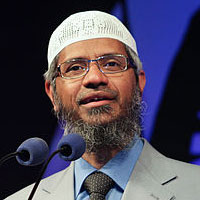
Ahmad Musa Jibril is an Arab-American Islamist preacher who has reportedly influenced Westerners to fight in the Syrian conflict.Joseph A. Carter, Shiraz Maher, and Peter R. Neumann, “#Greenbirds: Measuring Importance and Influence in Syrian Foreign Fighter Networks,” International Centre for the Study of Radicalisation, April 2014, 8, http://icsr.info/wp-content/uploads/2014/04/ICSR-Report-Greenbirds-Measuring-Importance-and-Infleunce-in-Syrian-Foreign-Fighter-Networks.pdf. From his home in Michigan, Jibril produces Internet lectures that advocate a Salafist version of Islam that praises jihad, although he doesn’t specifically call upon his followers to join jihadi groups.Joseph A. Carter, Shiraz Maher, and Peter R. Neumann, “#Greenbirds: Measuring Importance and Influence in Syrian Foreign Fighter Networks,” International Centre for the Study of Radicalisation, April 2014, 24, http://icsr.info/wp-content/uploads/2014/04/ICSR-Report-Greenbirds-Measuring-Importance-and-Infleunce-in-Syrian-Foreign-Fighter-Networks.pdf. A 2014 report by the International Centre for the Study of Radicalisation (ICSR) found that Jibril “adopts the role of a cheerleader: supporting the principles of armed opposition to Assad.”Joseph A. Carter, Shiraz Maher, and Peter R. Neumann, “#Greenbirds: Measuring Importance and Influence in Syrian Foreign Fighter Networks,” International Centre for the Study of Radicalisation, April 2014, 23, http://icsr.info/wp-content/uploads/2014/04/ICSR-Report-Greenbirds-Measuring-Importance-and-Infleunce-in-Syrian-Foreign-Fighter-Networks.pdf. One of the suspected attackers in the June 3, 2017, London Bridge terrorist attack was reportedly radicalized while watching Jibril’s videos online.Martin Evans, Nicola Harley, Harry Yorke, “London terrorist had twice been referred to police over his extremist views,” Telegraph (London), June 4, 2017, http://www.telegraph.co.uk/news/2017/06/04/london-terrorist-had-twice-referred-police-extremist-views/. Jibril has not maintained an active social media presence since 2014, but a group of followers created a series of social media accounts in his name in 2021. In December 2021, Jibril began responding to questions over the supporter-run Telegram channel.Ahmad Musā Jibrīl, Telegram channel, January 14, 2021.
In April 2014, ICSR researchers found that 60 percent of foreign fighters in Syria followed Jibril on Twitter.Joseph A. Carter, Shiraz Maher, and Peter R. Neumann, “#Greenbirds: Measuring Importance and Influence in Syrian Foreign Fighter Networks,” International Centre for the Study of Radicalisation, April 2014, 19, http://icsr.info/wp-content/uploads/2014/04/ICSR-Report-Greenbirds-Measuring-Importance-and-Infleunce-in-Syrian-Foreign-Fighter-Networks.pdf. Jibril has directly praised Syrian rebels, comparing them to those fighting on behalf of Islam in the religion’s early days. Jibril’s followers have primarily joined al-Qaeda-affiliated groups, but some have joined ISIS as well.Joseph A. Carter, Shiraz Maher, and Peter R. Neumann, “#Greenbirds: Measuring Importance and Influence in Syrian Foreign Fighter Networks,” International Centre for the Study of Radicalisation, April 2014, 24, http://icsr.info/wp-content/uploads/2014/04/ICSR-Report-Greenbirds-Measuring-Importance-and-Infleunce-in-Syrian-Foreign-Fighter-Networks.pdf. Jibril has been in direct contact with several foreign fighters and families of deceased fighters.Niraj Warikoo, “Dearborn cleric popular with militants faces travel, social media restrictions,” Detroit Free Press, July 7, 2014, http://www.freep.com/article/20140707/NEWS05/307070021/. Jibril “bridges the gap” for Westerners who may not understand Arabic, according to Shiraz Maher, one of the study’s co-authors.Clarissa Ward, “U.S. cleric inspiring jihadists in Syria?” CBS News, April 15, 2014, http://www.cbsnews.com/news/fiery-speeches-lure-americans-to-fight-in-syria/. Jibril “provides the political and theological justification” and “comfort” to jihadists, according to ICSR director Peter Neumann.Clarissa Ward, “U.S. cleric inspiring jihadists in Syria?” CBS News, April 15, 2014, http://www.cbsnews.com/news/fiery-speeches-lure-americans-to-fight-in-syria/.
On June 3, 2017, three men killed at least seven people and wounded at least 48 more in an ISIS-claimed terror attack in London. According to British authorities, one of the suspects radicalized by watching Jibril’s videos online.Martin Evans, Nicola Harley, Harry Yorke, “London terrorist had twice been referred to police over his extremist views,” Telegraph (London), June 4, 2017, http://www.telegraph.co.uk/news/2017/06/04/london-terrorist-had-twice-referred-police-extremist-views/. Jibril’s YouTube page, https://www.youtube.com/user/AhmadMusaJibril, has more than 16,000 subscribers as of June 2017.Ahmad Jibril, YouTube channel, accessed June 5, 2017, https://www.youtube.com/user/AhmadMusaJibril/about. Jibril’s Twitter account, @ahmadmusajibril, has more than more than 43,000 followers.Ahmad Musa Jibril, Twitter page, accessed June 5, 2017, https://twitter.com/ahmadmusajibril. His Facebook page, under the name Shaykh Ahmad Musa Jibril, has more than 240,000 likes, although he has not updated it since July 2014.Ahmad Musa Jibril, Facebook page, accessed June 5, 2017, https://www.facebook.com/ShaykhAhmadMusaJibril/. A second Facebook page called “Gems of shaykh Ahmad Musa Jibril” is updated more regularly with Jibril’s lectures and videos. The page has more than 15,000 followers.“Gems of shaykh Ahmad Musa Jibril, Facebook page, accessed June 5, 2017, https://www.facebook.com/shaykhahmadmusajibrl/.
Jibril also maintains a blog at https://ahmadjibrilblog.wordpress.com/, but it has not been updated since December 2015. Jibril previously ran a now defunct Islamist website, AlSalafyoon.com, which included “fanatically anti-American sermons by militant Islamic clerics,” according to U.S. authorities.Mark Hosenball and David Ashenfelter, “U.S. preacher who inspires Syrian rebels faces Internet monitoring,” Reuters, June 9, 2014, http://www.reuters.com/article/2014/06/09/us-usa-syria-preacher-idUSKBN0EK26F20140609. A group of Jibril’s followers created the website www.ahmadjibril.com/, which hosted lectures and articles by Jibril and his students but has not been updated since 2013.
Jibril also maintains a blog at https://ahmadjibrilblog.wordpress.com/, but it has not been updated since December 2015. Jibril previously ran a now defunct Islamist website, AlSalafyoon.com, which included “fanatically anti-American sermons by militant Islamic clerics,” according to U.S. authorities.Mark Hosenball and David Ashenfelter, “U.S. preacher who inspires Syrian rebels faces Internet monitoring,” Reuters, June 9, 2014, http://www.reuters.com/article/2014/06/09/us-usa-syria-preacher-idUSKBN0EK26F20140609. A group of Jibril’s followers created the website www.ahmadjibril.com/, which hosts lectures and articles by Jibril and his students. As of 2017, the site had not been updated since 2013. The site had been deleted by December 2021.
Jibril is the U.S.-born son of Palestinian immigrants. He holds a degree in sharia (Islamic law) from the Islamic University in Saudi Arabia as well as a JD and LLM from a Michigan law school.Joseph A. Carter, Shiraz Maher, and Peter R. Neumann, “#Greenbirds: Measuring Importance and Influence in Syrian Foreign Fighter Networks,” International Centre for the Study of Radicalisation, April 2014, 20, http://icsr.info/wp-content/uploads/2014/04/ICSR-Report-Greenbirds-Measuring-Importance-and-Infleunce-in-Syrian-Foreign-Fighter-Networks.pdf.
Jibril has been banned from at least two Michigan mosques due to his extremist views. In 2003, Jibril began to preach at the Masjid Umar Bin Khattab mosque in Brownstown, Michigan. Uninvited, he would rant about Shiites, the West, and Jews, according to Jawad Khan, then a 19-year-old college student and mosque attendee.“Extremism in Our Own Communities?” Beliefnet, June 2006, http://www.beliefnet.com/Faiths/Islam/2006/06/Extremism-In-Our-Own-Communities.aspx. Khan recalled that Jibril would accuse the West of crimes against Islam and ask God to turn Jewish children into orphans.“Extremism in Our Own Communities?” Beliefnet, June 2006, http://www.beliefnet.com/Faiths/Islam/2006/06/Extremism-In-Our-Own-Communities.aspx.
Jibril spent almost seven years in prison on fraud charges before he was released on probation in 2012. A federal judge restricted Jibril’s Internet and social-media access in June 2014 after Jibril violated his probation. The restrictions expired in March 2015. Jibril had not yet returned to his digital pulpit as of June 2017.Mark Hosenball and Alistair Bell, “U.S. online ban of militant Muslim preacher ends,” Reuters, April 7, 2015, http://www.reuters.com/article/2015/04/07/us-usa-religion-imam-idUSKBN0MY2CP20150407. Nevertheless, online jihadists continue to share Jibril’s lectures and videos.Freya Noble, “Islamic prayer room in a Sydney university 'being used to radicalise students' - with messages urging them to watch YouTube clips from hate preachers,” Daily Mail (London), updated April 18, 2016, http://www.dailymail.co.uk/news/article-3529193/Islamic-prayer-UTS-used-radicalise-students.html.
Jibril’s followers have launched multiple social media channels in his name, referring to them as Jibril’s official presence across multiple platforms. On December 1, 2021, students running Jibril’s Telegram channel posted Jibril had agreed to take questions from the more than 2,740 followers of the channel. According to the post, Jibril would record video responses to selected questions.Ahmad Musā Jibrīl, Telegram channel, January 14, 2021. Jibril’s followers have also created accounts on Instagram, Twitter, YouTube, and Facebook.Ahmad Musā Jibrīl, Telegram channel, January 14, 2021. As of December 7, 2021, Jibril-related accounts had accrued 4,471 followers on Twitter,Ahmad Musā Jibrīl, Twitter account, accessed December 7, 2021, https://twitter.com/sh_Ahmad_Jibril. 2,110 followers on YouTube,Shaykh Ahmad Musā Jibrīl, YouTube account, accessed December 7, 2021, https://www.youtube.com/channel/UCpl5DotvksRjBrI7-kk9tCQ/videos?app=desktop&view=0&sort=dd&shelf_id=0. 107 followers on Facebook,Shaykh Ahmad Musā Jibrīl, Facebook account, accessed December 7, 2021, https://www.facebook.com/Shaykh-Ahmad-Mus%C4%81-Jibr%C4%ABl-111604854686683/. and 27,700 followers on Instagram.Shaykh Ahmad Jibril, Instagram account, accessed December 7, 2021, https://www.instagram.com/shaykh_ahmad_jibril/. Each account explicitly stated it was run by Jibril’s students.
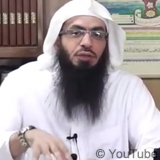
Umm Sayyaf is the wife of Abu Sayyaf, a mid-level ISIS leader who reportedly oversaw the group’s oil and gas enterprises. The United States suspects that Umm Sayyaf is an ISIS member who has played key roles in the group’s activities. Officials believe she is involved in ISIS’s human-trafficking operations.“Statement by NSC Spokesperson Bernadette Meehan on Counter-ISIL Operation in Syria,” White House, May 16, 2015, https://www.whitehouse.gov/the-press-office/2015/05/16/statement-nsc-spokesperson-bernadette-meehan-counter-isil-operation-sy-0; Elizabeth Chuck, “Slain ISIS Leader Abu Sayyaf Was a Little-Known, but High-Value Target,” NBC News, May 17, 2015, http://www.nbcnews.com/storyline/isis-terror/who-was-abu-sayyaf-emir-oil-killed-u-s-n360076. U.S. forces killed Abu Sayyaf and captured Umm Sayaf during a raid in al-Amr, Syria, on May 16, 2015.“Statement by NSC Spokesperson Bernadette Meehan on Counter-ISIL Operation in Syria,” White House, May 16, 2015, https://www.whitehouse.gov/the-press-office/2015/05/16/statement-nsc-spokesperson-bernadette-meehan-counter-isil-operation-sy-0. U.S. forces also discovered a Yazidi woman who had been enslaved in the Sayyaf household.“Statement by NSC Spokesperson Bernadette Meehan on Counter-ISIL Operation in Syria,” White House, May 16, 2015, https://www.whitehouse.gov/the-press-office/2015/05/16/statement-nsc-spokesperson-bernadette-meehan-counter-isil-operation-sy-0.
Upon her capture, Umm Sayyaf was flown to a U.S. base in Iraq for interrogation, with U.S. officials saying she would remain there indefinitely.Polly Mosendz, “Umm and Abu Sayyaf: U.S. Forces Kill Senior ISIS Leader, Take Another Alive,” Newsweek, May 16, 2015, http://www.newsweek.com/umm-and-abu-sayyaf-us-forces-kill-senior-isis-leader-take-another-alive-332603. The FBI is reportedly questioning Umm Sayyaf about information she learned from Abu Sayyaf as well as information on ISIS’s hostage operations.Shane Harris and Nancy A. Youssef, “Exclusive: FBI Grills ISIS ‘Mother’ About U.S. Hostages,” Daily Beast, May 18, 2015, http://www.thedailybeast.com/articles/2015/05/18/exclusive-fbi-grills-isis-mother-about-u-s-hostages.html. Pentagon officials said that Umm Sayyaf will not be sent to Guantanamo Bay.Martin Chulov and Spencer Ackerman, “Doubt cast over seniority of Isis leader killed by US special forces in Syria raid,” Guardian, May 16, 2015, http://www.theguardian.com/world/2015/may/16/isis-leader-killed-us-special-forces-raid-syria.
Umm Sayyaf is an Iraqi citizen. As such, outlets are reporting that Iraqi authorities may try to claim jurisdiction over her.Helene Cooper and Eric Schmitt, “ISIS Official Killed in U.S. Raid in Syria, Pentagon Says,” New York Times, May 16, 2015, http://www.nytimes.com/2015/05/17/world/middleeast/abu-sayyaf-isis-commander-killed-by-us-forces-pentagon-says.html.
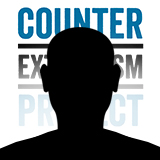
Sami Abu Zuhri is reported to be a spokesperson for the Palestinian terror organization Hamas. Zuhri regularly makes anti-Semitic, anti-Israel, and pro-violence statements. In November 2014, Abu Zuhri declared that “[all Israeli officials are] legitimate targets for the resistance.”“Hamas Says Israeli Leaders Are ‘Legitimate Targets’,” Times of Israel, November 21, 2014, http://www.timesofisrael.com/hamas-says-israeli-leaders-are-legitimate-targets/. He is believed to operate out of the Gaza Strip.
In March 2015, 26 Americans present at Israel’s Ben Gurion Airport at the time when it was targeted by Hamas missiles filed a lawsuit against the terror group. The charges of war crimes were filed against Abu Zuhri, Hamas chief Khaled Meshaal, and other Hamas officials.Avi Lewis, “26 Americans to sue Hamas for rocket fire at Ben Gurion Airport,” Times of Israel, March 31, 2015, http://www.timesofisrael.com/26-americans-to-sue-hamas-for-airport-rocket-fire-last-summer/.
Abu Zuhri received wide media attention in 2006 when Palestinian authorities caught him attempting to smuggle more than $800,000 in cash through the Rafah border crossing from Egypt. Abu Zuhri claimed that he was returning from Qatar with funds that had been donated to Hamas, while the Palestinian Authority accused Zuhri of smuggling money embezzled for personal use.“Hamas Caught Smuggling Cash,” Los Angeles Times, May 20, 2006, http://articles.chicagotribune.com/2006-05-20/news/0605200133_1_palestinian-executive-branch-direct-international-aid-hamas.
Abu Zuhri was implicated in separate incidents of alleged sexual harassment of female journalists in the Gaza Strip in 2007 and 2014, respectively.Lazar Berman, “Hamas spokesman said to have harassed female foreign reporter,” Times of Israel, December 7, 2014, http://www.timesofisrael.com/hamas-spokesman-said-to-have-harassed-female-foreign-reporter/. Nonetheless, he has continued to act as a spokesman for Hamas. In 2020, he condemned a series of normalization deals between Israel and other countries in the Middle East and North Africa region. Abu Zuhri accused Sudan, Bahrain, and the United Arab Emirates of betraying the Palestinian cause.Sami Abu Zuhri, Twitter post, October 23, 2020, 12:09 p.m., https://twitter.com/SamiZuhri/status/1319672292931260416; Sami Abu Zuhri, Twitter post, December 3, 2020, 10:15 a.m., https://twitter.com/SamiZuhri/status/1334516493778890760; Sami Abu Zuhri, Twitter post, December 20, 2020, 5:41 a.m., https://twitter.com/SamiZuhri/status/1340608161976336384. He also condemned the Palestinian Authority in April 2021 for delaying Palestinian legislative elections.Sami Abu Zuhri, Twitter post, April 27, 2021, 7:40 a.m., https://twitter.com/SamiZuhri/status/1387008861006176256. In the aftermath of the 11-day conflict between Hamas and Israel in May 2021, Abu Zuhri warned the ceasefire between the two parties remained fragile and was not a long-term truce.Adel Bin Ibrahim Bin Elhady Elthabti, “Continuation of cease-fire depends on Israel's behavior: Hamas,” Anadolu Agency, April 6, 2021, https://www.aa.com.tr/en/middle-east/continuation-of-cease-fire-depends-on-israels-behavior-hamas/2263423.
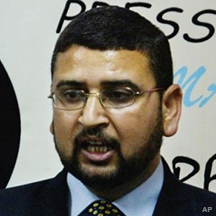
Ahmad Abousamra, also known as Abu Sulayman Ash-Shami, was a Boston-raised jihadist and a key member of ISIS. He reportedly helped to disseminate the terror group’s viral videos and to create its English-language propaganda magazines Dabiq and Rumiyah.Michael Zennie, “The American computer wiz running brutally effective ISIS social media campaign: College-educated son of top Boston doctor is on FBI Most Wanted list,” Daily Mail (London), September 4, 2014, http://www.dailymail.co.uk/news/article-2743737/The-American-computer-wiz-running-ISIS-brutally-effective-social-media-campaign-College-educated-son-Boston-doctor-FBI-Most-Wanted-list.html;
“Among the Believers Are Men,” Rumiyah, April 2017, https://azelin.files.wordpress.com/2017/04/rome-magazine-8.pdf. Abousamra reportedly died in a January 2017 airstrike outside of Raqqa, Syria, according to his eulogy in the April 2017 issue of Rumiyah.“Among the Believers Are Men,” Rumiyah, April 2017, https://azelin.files.wordpress.com/2017/04/rome-magazine-8.pdf. Before his reported death, Abousamra is believed to have lived in Aleppo, Syria, with his wife, extended family, and at least one child.“Wanted Fugitive Ahmad Abousamra Added to the FBI’s Most Wanted Terrorists List,” FBI Boston, December 18, 2013, http://www.fbi.gov/boston/press-releases/2013/wanted-fugitive-ahmad-abousamra-added-to-the-fbis-most-wanted-terrorists-list.
Abousamra was born in France in 1981 and raised in an upscale suburb in Boston, Massachusetts.Michael Zennie, “The American computer wiz running brutally effective ISIS social media campaign: College-educated son of top Boston doctor is on FBI Most Wanted list,” Daily Mail (London), September 4, 2014, http://www.dailymail.co.uk/news/article-2743737/The-American-computer-wiz-running-ISIS-brutally-effective-social-media-campaign-College-educated-son-Boston-doctor-FBI-Most-Wanted-list.html. Growing up, Abousamra worshipped at the Islamic Society of Boston in Cambridge, Massachusetts, the same mosque frequented by Tamerlan and Dzhokhar Tsarnaev, “Lady al-Qaeda” Aafia Siddiqui, banned Muslim Brotherhood leader Yusuf al-Qaradawi, Abousamra’s co-conspirator Tarek Mehanna, and other convicted supporters of terrorism, including the mosque’s founder, Abdurahman Alamoudi.Paul Sperry, “Boston bombers’ mosque tied to ISIS,” New York Post, September 7, 2014, http://nypost.com/2014/09/07/jihadi-behind-beheading-videos-linked-to-notorious-us-mosque/.
Abousamra attended a Catholic high school in Boston and then Northeastern University, graduating with a degree related to computer science.Michael Zennie, “The American computer wiz running brutally effective ISIS social media campaign: College-educated son of top Boston doctor is on FBI Most Wanted list,” Daily Mail (London), September 4, 2014, http://www.dailymail.co.uk/news/article-2743737/The-American-computer-wiz-running-ISIS-brutally-effective-social-media-campaign-College-educated-son-Boston-doctor-FBI-Most-Wanted-list.html. While in college, Abousamra took multiple trips to Pakistan and Yemen where, according to the FBI, he “allegedly attempted to obtain military training for the purpose of killing American soldiers overseas.”“Wanted Fugitive Ahmad Abousamra Added to the FBI’s Most Wanted Terrorists List,” FBI Boston, December 18, 2013, http://www.fbi.gov/boston/press-releases/2013/wanted-fugitive-ahmad-abousamra-added-to-the-fbis-most-wanted-terrorists-list. In April 2002, he briefly traveled to Pakistan to allegedly attend a terrorist training camp.“United States of America v. Tarek Mehanna and Ahmad Abousamra Superseding Indictment,” U.S. Department of Justice, November 5, 2009, 4-5. Nearly two years later, on February 1, 2004, Abousamra and co-conspirator Tarek Mehanna left the United States for an al-Qaeda training camp in Yemen. After two weeks at the Yemeni camp, Abousamra traveled to Iraq to fight with al-Qaeda in Iraq. He returned to the United States approximately six months later in August 2004. Michele McPhee and Brian Ross, “Official: American May Be Key in ISIS Social Media Blitz,” ABC News, September 3, 2014, http://abcnews.go.com/blogs/headlines/2014/09/official-american-may-be-key-in-isis-social-media-blitz/;
Paul Cruickshank, “ISIS lifts veil on American at heart of its propaganda machine,” CNN, April 7, 2017, http://www.cnn.com/2017/04/06/middleeast/isis-american-propaganda-editor/;
“United States of America v. Tarek Mehanna and Ahmad Abousamra Superseding Indictment,” U.S. Department of Justice, November 5, 2009, 4-5.
In December 2006, agents from the FBI’s Joint Terrorism Task Force questioned Abousamra, but did not charge him after he provided false information about the purpose of his 2004 trip to Yemen. Abousamra told the FBI that he had gone to Yemen to look at Arabic schools but did not like them and returned after a week. Abousamra traveled to Syria soon after the December 2006 FBI interview.Michele McPhee and Brian Ross, “Official: American May Be Key in ISIS Social Media Blitz,” ABC News, September 3, 2014, http://abcnews.go.com/blogs/headlines/2014/09/official-american-may-be-key-in-isis-social-media-blitz/;
Michael Zennie, “The American computer wiz running brutally effective ISIS social media campaign: College-educated son of top Boston doctor is on FBI Most Wanted list,” Daily Mail (London), September 4, 2014, http://www.dailymail.co.uk/news/article-2743737/The-American-computer-wiz-running-ISIS-brutally-effective-social-media-campaign-College-educated-son-Boston-doctor-FBI-Most-Wanted-list.html;
“United States of America v. Tarek Mehanna and Ahmad Abousamra Superseding Indictment,” U.S. Department of Justice, November 5, 2009, 26.
In 2009, a U.S. district court indicted Abousamra on nine terrorism-related charges and issued a federal warrant for his arrest. “Wanted Fugitive Ahmad Abousamra Added to the FBI’s Most Wanted Terrorists List,” FBI Boston, December 18, 2013, http://www.fbi.gov/boston/press-releases/2013/wanted-fugitive-ahmad-abousamra-added-to-the-fbis-most-wanted-terrorists-list. In 2013, the FBI added Abousamra to its list of Most Wanted Terrorists and offered a $50,000 reward for his capture.“Wanted Fugitive Ahmad Abousamra Added to the FBI’s Most Wanted Terrorists List,” FBI Boston, December 18, 2013, http://www.fbi.gov/boston/press-releases/2013/wanted-fugitive-ahmad-abousamra-added-to-the-fbis-most-wanted-terrorists-list.
After the outbreak of the Syrian civil war in 2011, Abousamra joined the fighting alongside the Nusra Front (Jabhat Fateh al-Sham). According to ISIS’s eulogy, Abousamra left the Nusra Front to join ISIS after criticizing Nusra leader Abu Muhammad al-Golani for betraying ISIS and its leader, Abu Bakr al-Baghdadi. Abousamra initially sought to carry out a suicide attack for ISIS, but was convinced by fellow member Shaykh Abu Muhammad al-Furqan to reconsider. Furqan instead introduced Abousamra to ISIS’s media department.“Among the Believers Are Men,” Rumiyah, April 2017, https://azelin.files.wordpress.com/2017/04/rome-magazine-8.pdf.
Utilizing his fluency in both Arabic and English, as well as his technology-related college degree, Abousamra took on a leadership role translating ISIS’s propaganda into English. He helped Furqan organize ISIS’s foreign language team and advised on the creation of the group’s Dabiq and Rumiyah magazines. He became Dabiq’s editor and also guided the terror group in releasing viral videos online.“Among the Believers Are Men,” Rumiyah, April 2017, https://azelin.files.wordpress.com/2017/04/rome-magazine-8.pdf. In June 2015, the Iraqi government referred to Abousamra as “an ISIS filmmaking expert” when erroneously reporting his death in an airstrike in Iraq.“Mass. man accused of aiding ISIS killed in Iraq, reports say,” Boston Globe, June 3, 2015, https://www.bostonglobe.com/metro/2015/06/03/mass-man-accused-aiding-isis-killed-iraq-reports-say/MABevJO6Pm4beu1B8M1yHI/story.html.
Soon after ISIS released the first issue of Rumiyah in September 2016, Abousamra’s mentor, Furqan, died in an airstrike in Raqqa. According to ISIS’s April 2017 issue of Rumiyah, Abousamra was so distraught by Furqan’s death that he insisted on becoming a frontline soldier for ISIS. Abousamra then died in January 2017 when a missile struck the house where he was staying near Raqqa. According to Rumiyah, Abousamra left “his image imprinted in the minds of his brothers, sitting at his computer in the darkness of night and the early hours of morning, researching an issue, reviewing a book, or writing an article.”“Among the Believers Are Men,” Rumiyah, April 2017, https://azelin.files.wordpress.com/2017/04/rome-magazine-8.pdf.
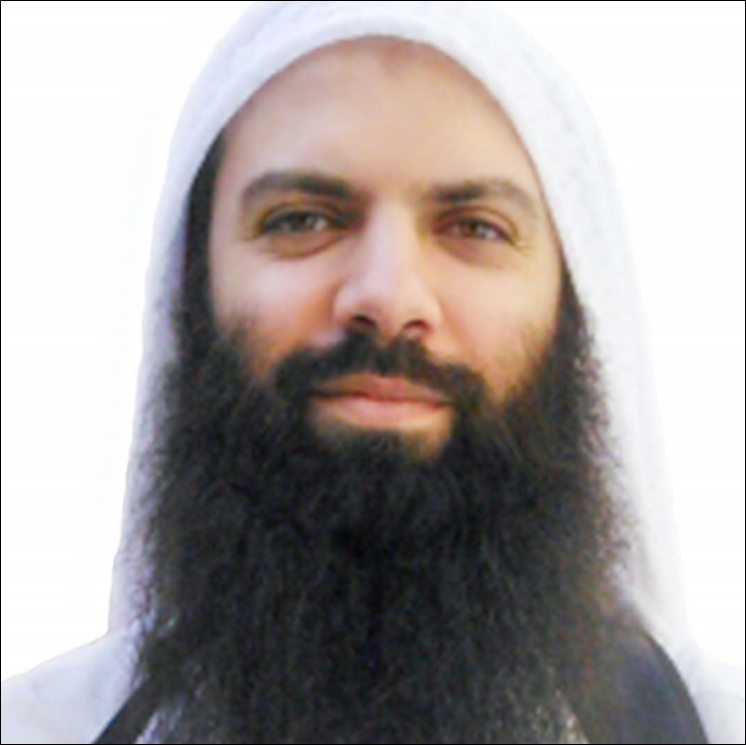
Ubaydullah Hussain is a Norwegian-Pakistani national and incarcerated ISIS supporter.Agence France-Presse, “Norway sentences Isis recruiter to nine years in prison,” Local (Stockholm), April 4, 2017, https://www.thelocal.no/20170404/norway-sentences-is-recruiter-to-nine-years-in-prison. In an August 2014 interview with Norwegian newspaper VG, Hussain declared his “absolute” support for ISIS and expressed his desire to implement sharia in Norway.Brynjar Skjærli, Morten S. Hopperstad, Jonas Tjersland, Silje Ensrud, Nikolai Kleivan and Harald Henden, “Støtter IS’ halshugging,” VG Nyheter, August 16, 2014, http://www.vg.no/nyheter/innenriks/islam-debatten/stoetter-is-halshugging/a/23275610/; Hugh Eakin, “Noway: The Two Faces of Extremism,” The New York Review of Books, March 5, 2015, http://www.nybooks.com/articles/archives/2015/mar/05/norway-two-faces-extremism/. He is the former spokesman of the Islamist organization Profetens Ummah based in Norway.Hugh Eakin, “Noway: The Two Faces of Extremism,” The New York Review of Books, March 5, 2015, http://www.nybooks.com/articles/archives/2015/mar/05/norway-two-faces-extremism/; Erlend Ofte Arntsen, “Ubaydullah Hussain (29) pågrepet og løslatt,” VG Nyheter, April 14, 2015, http://www.vg.no/nyheter/innenriks/krim/ubaydullah-hussain-29-paagrepet-og-loeslatt/a/23434684/. Profetens Ummah has reportedly assisted Norwegian Muslims in traveling to ISIS-controlled territory.Julie Ryland, “Ubaydullah Hussain has been released,” Norway Post, November 28, 2012, http://www.norwaypost.com/index.php/news/latest-news/27748-ubaydullah-hussain-has-been-released-.
In October 2012, Hussain allegedly wrote threatening emails to Norwegian journalists Nina Johnsrud and Andrea Foss is response to their respective articles on Islamists in Norway. Hussain wrote that the journalists should be worried about their safety, and that if something should happen to them he would “smile all the way to the funeral.”Øyvind Strømmen, “Norwegian Islamist convicted,” Hate Speech International, February 12, 2014, https://www.hate-speech.org/norwegian-islamist-convicted/. Later in October, Norwegian police charged Hussain with threatening the journalists. The police held him in custody and released him after a month.Julie Ryland, “Ubaydullah Hussain has been released,” Norway Post, November 28, 2012, http://www.norwaypost.com/index.php/news/latest-news/27748-ubaydullah-hussain-has-been-released-.
On April 10, 2015, Hussain was arrested, interrogated, and released on the same day for allegedly issuing a death threat via SMS to an unidentified individual.Erlend Ofte Arntsen, “Ubaydullah Hussain (29) pågrepet og løslatt,” VG Nyheter, April 14, 2015, http://www.vg.no/nyheter/innenriks/krim/ubaydullah-hussain-29-paagrepet-og-loeslatt/a/23434684/. That December, he was arrested and charged with numerous terror offenses, including recruiting foreign fighters to travel to Syria and fight with ISIS.Agence France-Presse, “Norway sentences Isis recruiter to nine years in prison,” Local (Stockholm), April 4, 2017, https://www.thelocal.no/20170404/norway-sentences-is-recruiter-to-nine-years-in-prison. A Norwegian court sentenced Hussain to nine years in prison in April 2017 for pledging allegiance to ISIS, financially supporting the group, and recruiting Norwegian foreign fighters to join its ranks.Agence France-Presse, “Norway sentences Isis recruiter to nine years in prison,” Local (Stockholm), April 4, 2017, https://www.thelocal.no/20170404/norway-sentences-is-recruiter-to-nine-years-in-prison.
Norwegian-Pakistani national and incarcerated ISIS supporter who praised the murder of British soldier Lee Rigby. Former spokesman of the Islamist organization Profetens Ummah based in Norway. Convicted in February 2014 of threatening journalists and hate speech against Norwegian Jews. Sentenced to 120 days in prison. Arrested in December 2015 for recruiting foreign fighters to travel to Syria and fight with ISIS, among other terror-related offenses. Sentenced to nine years in prison in April 2017 for pledging allegiance to and financially supporting ISIS, as well as recruiting Norwegian foreign fighters to the terror group.
Visited Choudary in England in 2014 three months before Choudary’s arrest. Footage of the visit was released publicly. Choudary praised Hussain during a 2012 visit to Norway.
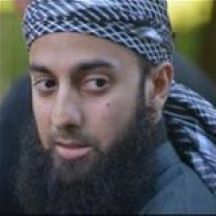
Nasser bin Ali al-Ansi was a senior leader of al-Qaeda in the Arabian Peninsula (AQAP) and regularly featured in the group’s propaganda videos.Joscelyn, Thomas; Adaki, Oren, “AQAP Official calls on Rival Factions to Unite Against the West,” Long War Journal, October 1, 2014, http://www.longwarjournal.org/archives/2014/10/aqap_leader_calls_on.php. Al-Ansi took an active role in advertising the kidnapping and eventual murder of American hostage Luke Somers in December 2014.“Yemen’s al-Qaeda threatens American hostage Luke Somers in new video,” Huffington Post, December 14, 2014, http://www.huffingtonpost.com/2014/12/04/yemen-luke-somers_n_6268302.html. In January 2015, al-Ansi featured in the AQAP video claiming responsibility for the attack on Charlie Hebdo, and praised the perpetrators as “heroes of Islam.”“Al-Qaeda Claims French Attack, Derides Paris Rally,” Sami Aboudi, Reuters, January 14, 2015, http://www.reuters.com/article/2015/01/14/us-france-shooting-aqap-idUSKBN0KN0VO20150114. He was reportedly killed by a U.S. airstrike in April, 2015.Simon Tomlinson, “Senior Al-Qaeda figure who claimed responsibility for the Charlie Hebdo attacks is killed alongside his son in US air strike,” Daily Mail, May 7, 2015, http://www.dailymail.co.uk/news/article-3072559/Al-Qaeda-says-prominent-member-killed-US-strike-Yemen.html.
Al-Ansi had long been involved in Islamist activity. In the 1990s he travelled to Bosnia to fight against the Serbian paramilitaries.“Who is AQAP terror group commander al-Ansi?,” Nick Paton Walsh, CNN, January 14, 2015, http://edition.cnn.com/videos/tv/2015/01/14/dnt-paton-walsh-al-ansi-profile.cnn. In 1998 he traveled to Afghanistan to join al-Qaeda,Joscelyn, Thomas; Adaki, Oren, “AQAP Official calls on Rival Factions to Unite Against the West,” Long War Journal, October 1, 2014, http://www.longwarjournal.org/archives/2014/10/aqap_leader_calls_on.php. and was personally directed by Osama bin Laden to train mujahideen forces in the Philippines.Joscelyn, Thomas; Adaki, Oren, “AQAP Official calls on Rival Factions to Unite Against the West,” Long War Journal, October 1, 2014, http://www.longwarjournal.org/archives/2014/10/aqap_leader_calls_on.php. Following 9/11, he attempted to return to Afghanistan to fight U.S. troops, but was detained by Yemeni authorities for six months.“Who is AQAP terror group commander al-Ansi?,” Nick Paton Walsh, CNN, January 14, 2015, http://edition.cnn.com/videos/tv/2015/01/14/dnt-paton-walsh-al-ansi-profile.cnn. After he was freed, al-Ansi enrolled in the Iman Unviersity in Yemen where he received a certificate in sharia jurisprudence. According to the Long War Journal, al-Ansi reportedly preached “among the young” and conducted “some special training” during this time.Joscelyn, Thomas; Adaki, Oren, “AQAP Official calls on Rival Factions to Unite Against the West,” Long War Journal, October 1, 2014, http://www.longwarjournal.org/archives/2014/10/aqap_leader_calls_on.php. Al-Ansi eventually linked up with AQAP, and by 2011 had risen through the ranks to become a senior commander and spokesman.Joscelyn, Thomas; Adaki, Oren, “AQAP Official calls on Rival Factions to Unite Against the West,” Long War Journal, October 1, 2014, http://www.longwarjournal.org/archives/2014/10/aqap_leader_calls_on.php. He operated out of Yemen.Thomas Joscelyn, “Osama bin Laden’s files: al Qaeda’s deputy general manager in Yemen,” Long War Journal, March 1, 2015, http://www.longwarjournal.org/tags/nasser-bin-ali-al-ansi.
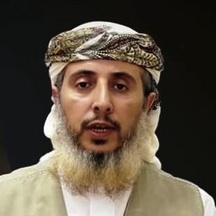
Mustafa Setmariam Nasar’s whereabouts are currently disputed. The Long War Journal believes Nasar is still in a Syrian jailBill Roggio, “Al Qaeda’s American propagandist notes death of terror group’s representative in Syria,” Long War Journal, March 30, 2014, http://www.longwarjournal.org/archives/2014/03/al_qaedas_american_p.php. after his U.S. rendition to Syria from Pakistan in 2005. Known as Abu Musab al-Suri, Nasar is considered the intellectual father of the modern jihadist movement or “third jihad” as Osama bin Laden called the post 9/11 terrorist movement. Nasar’s 1,000 page opus, the Global Islamic Resistance (GIR), is considered the most influential Islamist doctrine outlining the basis for today’s de-centralized Islamist terrorist activities worldwide. The work includes Nasar’s advocacy for what we call today “Lone Wolf” terrorism or “leaderless jihad”.Scott Morrison, “What If There Is No Terrorist Network?,” Armed Forces Journal, August 1, 2007, http://www.armedforcesjournal.com/what-if-there-is-no-terrorist-network/.
Nasar is also believed to have been a great influence on other Islamist thinkers such as Anwar al-Awlaki, who is given credit for inspiring lone wolves such as General Nidal Hasan and the Times Square bomber Faisal Shahzad.David Montero, “US-born cleric inspired Times Square bomber Faisal Shahzad,” Christian Science Monitor, May 7, 2010, http://www.csmonitor.com/World/terrorism-security/2010/0507/US-born-cleric-inspired-Times-Square-bomber-Faisal-Shahzad. Hasan perpetrated the Fort Hood shootings in Texas in 2009, killing 13 people.David Johnston and Scott Shane, “U.S. Knew of Suspect’s Tie to Radical Cleric,” New York Times, November 9, 2009, http://www.nytimes.com/2009/11/10/us/10inquire.html?_r=0. Nasar is also suspected of assisting and/or planning the London and Madrid bombings, which killed 52 and 198 people respectively.Marc Champion, Keith Johnson, and Carlta Vitzthum, “Train Bombings Kill At Least 198 in Spain,” Wall Street Journal, March 12, 2004, http://www.wsj.com/articles/SB107899319607552435.
Born in Aleppo, Syria in 1958, Nasar studied mechanical engineering before joining the Islamic Combat Vanguards, “which was connected to the Syrian Muslim Brotherhood, to fight against the Alawite Ba’ath regime”.Paul Cruickshank, “Abu Musab Al Suri: Architect of the New Al Qaeda,” Studies in Conflict & Terrorism, 30:1–14, 2007, page 7, Center on Law and Security, NYU School of Law, http://www.lawandsecurity.org/portals/0/documents/abumusabalsuriarchitectofthenewalqaeda.pdf. He became a specialist in explosives engineering, urban warfare, and “special operations." Nasar reserves a special loathing for the United States and is quoted as having wished weapons of mass destruction had been loaded on the planes that perpetrated 9/11. Paul Cruickshank, “Abu Musab Al Suri: Architect of the New Al Qaeda,” Studies in Conflict & Terrorism, 30:1–14, 2007, page 7, Center on Law and Security, NYU School of Law, http://www.lawandsecurity.org/portals/0/documents/abumusabalsuriarchitectofthenewalqaeda.pdf.
Nasar spent the late 1990s running training camps for al-Qaeda. He considered Mullah Omar the emir of Afghanistan when the country came under Taliban control and acted as an advisor to Osama bin Laden, though it is reported that Nasar was critical of bin Laden. Reportedly, Nasar accused bin Laden of enjoying media attention too much.Paul Cruickshank, “Abu Musab Al Suri: Architect of the New Al Qaeda,” Studies in Conflict & Terrorism, 30:1–14, 2007, page 3, Center on Law and Security, NYU School of Law, http://www.lawandsecurity.org/portals/0/documents/abumusabalsuriarchitectofthenewalqaeda.pdf. In 1997, Nasar facilitated the first CNN interview with Osama bin Laden.
Nasar is credited with founding the post-9/11 “third generation” of jihadists through his writing and training. He has been a major player in forcing al-Qaeda to evolve from a hierarchical organization to an ideology driven group that weaves the principles of Sayyed Qutb’s Salafist Islamic political into strategic justifications for so-called lone wolf jihadism.Henry Schuster, “The Mastermind,” CNN, March 9, 2006, http://edition.cnn.com/2006/WORLD/meast/03/09/schuster.column/.
Proof of Nasar’s influence can be found in the Madrid and London bombings, though “no evidence emerged to provide a direct operational link” to him. Nevertheless, Nasar became a wanted man after being indicted in 2005 in a Spanish court for terrorist activity. As a result, Nasar fled to Pakistan, where the CIA eventually captured him. Nasar was then handed over to Syria for interrogation.
It is unclear if Nasar is still in prison. In 2014, the Nusra Front conditioned its release of 45 UN peacekeepers in the Golan Heights on Nasar’s release, among other demands. The National, “Syrian Rebels Demand To Be Removed from UN Terrorist List,” September 2, 2014, http://www.thenational.ae/world/middle-east/syrian-rebels-demand-to-be-removed-from-un-terrorist-list.
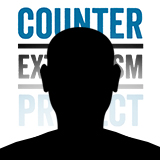
Jehad Serwan Mostafa is a U.S.-designated militant believed to be the highest-ranking U.S. citizen fighting overseas with al-Shabaab.Kim Bellware, California man now ‘highest-ranking’ American fighting alongside al-Shabab terrorists, FBI says,” Washington Post, December 3, 2019, https://www.washingtonpost.com/nation/2019/12/03/fbi-renews-million-reward-american-explosives-expert-fighting-with-terrorists-overseas/. Mostafa is not only on the FBI’s Most Wanted Terrorist List, but the U.S. Department of State’s Rewards for Justice program has also offered up to $10 million for information leading to his arrest and conviction.“Jehad Serwan Mostafa,” FBI: Most Wanted Terrorists, accessed December 4, 2019, https://www.fbi.gov/wanted/wanted_terrorists/jehad-serwan-mostafa; “Indictment Unsealed Charging Former San Diego Resident Jehad Serwan Mostafa with Providing Material Support to Militant Islamic Terrorist Organization Al-Shabaab,” Department of Justice, December 2, 2019, https://www.justice.gov/usao-sdca/pr/indictment-unsealed-charging-former-san-diego-resident-jehad-serwan-mostafa-providing; “Rewards for Justice – Reward Offers for Information on Key Leaders of al-Shabaab Ahmed Diriye, Mahad Karate, and Jehad Mostafa, and the Disruption of its Financial Mechanisms,” U.S. Department of State, November 18, 2022, https://www.state.gov/rewards-for-justice-reward-offers-for-information-on-key-leaders-of-al-shabaab-ahmed-diriye-mahad-karate-and-jehad-mostafa-and-the-disruption-of-its-financial-mechanisms/. According to two different indictments in October 2009 and December 2019, Mostafa is accused of providing material support to al-Shabaab.“Fourteen Charged with Providing Material Support to Somalis-Based Terrorist Organization Al-Shabab,” Department of Justice, August 5, 2010, https://www.justice.gov/opa/pr/fourteen-charged-providing-material-support-somalia-based-terrorist-organization-al-shabaab. The 2019 indictment extended the timeline of the original 2009 indictments to include his alleged terrorist activities, which took place between March 2008 to February 2017, bringing renewed attention to the case.Kim Bellware, California man now ‘highest-ranking’ American fighting alongside al-Shabab terrorists, FBI says,” Washington Post, December 3, 2019, https://www.washingtonpost.com/nation/2019/12/03/fbi-renews-million-reward-american-explosives-expert-fighting-with-terrorists-overseas/.
Mostafa was born in Waukesha, Wisconsin and raised in San Diego, California. He was reportedly involved in and served as president of the now-defunct Muslim Youth Council of San Diego.Elliot Spagart, “US citizen raised in San Diego faces new terrorism charges,” Associated Press, December 2, 2019, https://apnews.com/3fd9c933e17d4db99ed4b7c8ab3663f7. In 2000, Mostafa was issued a license to be a security guard from California’s Bureau of Security and Investigative Services, though it expired in 2006.Greg Moran, “Former SD man among 14 charged with aiding terror group,” San Diego Union-Tribune, August 5, 2010, https://www.sandiegouniontribune.com/sdut-san-diegan-among-those-charged-aiding-somalian-ter-2010aug05-htmlstory.html. He graduated from the University of California, San Diego in 2005.Elliot Spagart, “US citizen raised in San Diego faces new terrorism charges,” Associated Press, December 2, 2019, https://apnews.com/3fd9c933e17d4db99ed4b7c8ab3663f7.
Mostafa’s American acquaintances have described him as a “quiet,” “patient,” and “peace keeping Muslim.” They were shocked to learn of his 2009 indictment, with one woman saying, "Oh my God. That's hard to believe. He had no accent. He was a white kid with red hair.”R. Stickney and Paul Krueger, “Accused Terrorist was ‘Kind, Peaceful Man:’ Friends,” NBC San Diego, August 6, 2010, http://www.nbcsandiego.com/news/local/Accused-Terrorist-Was-Kind-Peaceful-Man-Friends-100139424.html. His father, Kurdish Syrian Halim Mostafa, reportedly made a 2008 film called Mozlym, in an effort to show the “true meaning of Islam often lost amid misconceptions of non-Muslims in America.”Elliot Spagart, “US citizen raised in San Diego faces new terrorism charges,” Associated Press, December 2, 2019, https://apnews.com/3fd9c933e17d4db99ed4b7c8ab3663f7.
Mostafa left San Diego in December 2005 and arrived first in Sanaa, Yemen where he traveled on to Somalia.Greg Moran, “Former SD man among 14 charged with aiding terror group,” San Diego Union-Tribune, August 5, 2010, https://www.sandiegouniontribune.com/sdut-san-diegan-among-those-charged-aiding-somalian-ter-2010aug05-htmlstory.html; “Indictment Unsealed Charging Former San Diego Resident Jehad Serwan Mostafa with Providing Material Support to Militant Islamic Terrorist Organization Al-Shabaab,” Department of Justice, December 2, 2019, https://www.justice.gov/usao-sdca/pr/indictment-unsealed-charging-former-san-diego-resident-jehad-serwan-mostafa-providing. Once there, he reportedly fought against internationally-supported Ethiopian forces and went on to join al-Shabaab in approximately 2006.“Indictment Unsealed Charging Former San Diego Resident Jehad Serwan Mostafa with Providing Material Support to Militant Islamic Terrorist Organization Al-Shabaab,” Department of Justice, December 2, 2019, https://www.justice.gov/usao-sdca/pr/indictment-unsealed-charging-former-san-diego-resident-jehad-serwan-mostafa-providing; “Jehad Serwan Mostafa,” FBI: Most Wanted Terrorists, accessed December 4, 2019, https://www.fbi.gov/wanted/wanted_terrorists/jehad-serwan-mostafa. In the ensuing decade, Mostafa held positions with the terrorist group’s explosives unit, media wing, and training camps, according to FBI Special Agent Erin Westfall.Kim Bellware, “California man now ‘highest-ranking’ American fighting alongside al-Shabab terrorists, FBI says,” Washington Post, December 3, 2019, https://www.washingtonpost.com/nation/2019/12/03/fbi-renews-million-reward-american-explosives-expert-fighting-with-terrorists-overseas/. He has also served as a leader of the group’s foreign fighters, according to the FBI.“Jehad Serwan Mostafa,” FBI: Most Wanted Terrorists, accessed December 4, 2019, https://www.fbi.gov/wanted/wanted_terrorists/jehad-serwan-mostafa. Mostafa rose to al-Shabaab’s leadership as early as 2009.“Indictment Unsealed Charging Former San Diego Resident Jehad Serwan Mostafa with Providing Material Support to Militant Islamic Terrorist Organization Al-Shabaab,” Department of Justice, December 2, 2019, https://www.justice.gov/usao-sdca/pr/indictment-unsealed-charging-former-san-diego-resident-jehad-serwan-mostafa-providing.
There is evidence that Mostafa played a role in the terrorist group’s external operations. In 2011, he appeared at a press conference in an apparent attempt to facilitate partnerships between al-Shabaab and other terrorist groups. Mostafa has been linked to the use and development of improvised explosive devices (IEDs) for terrorist attacks in Somalia. The FBI believes that he continues to play a leading role in planning operations against the government of Somalia, as well as internationally-backed African Union forces operating in the country and East Africa region.“Indictment Unsealed Charging Former San Diego Resident Jehad Serwan Mostafa with Providing Material Support to Militant Islamic Terrorist Organization Al-Shabaab,” Department of Justice, December 2, 2019, https://www.justice.gov/usao-sdca/pr/indictment-unsealed-charging-former-san-diego-resident-jehad-serwan-mostafa-providing. Among Mostafa’s many roles in al-Shabaab, he is a leader in the group’s “explosives department” and holds a pivotal role across the media and soldier training wings. He is also reportedly close to the decision-making circle of Amniyat, al-Shabaab’s intelligence wing controlled by al-Shabaab leader Mahad Warsame Qaley.“Wanted by the FBI: Jehad Serwan Mostafa,” Federal Bureau of Investigation, December 2, 2019, https://www.fbi.gov/audio-repository/wanted-podcast-jehad-serwan-mostafa-120219.mp3/view.; Hollie McKay, “Who is the FBI’s most wanted American terrorist? Meet Jehad Serwan Mostafa,” Fox News, January 9, 2020, https://www.foxnews.com/world/who-is-the-fbis-most-wanted-american-terrorist-meet-jehad-serwan-mostafa.
Mostafa is on the FBI’s Most Wanted Terrorists list, and on March 20, 2013, the U.S. State Department’s Reward for Justice Program offered a reward of up to $5 million dollars for information leading to the arrest and conviction of Mostafa.“Jehad Serwan Mostafa,” FBI: Most Wanted Terrorists, accessed February 23, 2015, http://www.fbi.gov/wanted/wanted_terrorists/copy_of_jehad-serwan-mostafa/view; “Indictment Unsealed Charging Former San Diego Resident Jehad Serwan Mostafa with Providing Material Support to Militant Islamic Terrorist Organization Al-Shabaab,” U.S. Department of Justice, December 2, 2019, https://www.justice.gov/usao-sdca/pr/indictment-unsealed-charging-former-san-diego-resident-jehad-serwan-mostafa-providing. In February 2009, Mostafa was indicted by a U.S. grand jury and charged with “conspiracy to provide material support to terrorists; conspiracy to provide material support to a foreign terrorist organization; and providing material support to a foreign terrorist organization.”“Fourteen Charged with Providing Material Support to Somalia-Based Terrorist Organization Al-Shabab,” Department of Justice, August 5, 2010, https://www.justice.gov/opa/pr/fourteen-charged-providing-material-support-somalia-based-terrorist-organization-al-shabaab. Mostafa faces a 15-year sentence for each indictment.“14 in U.S. accused of supporting Somali terrorist group,” Los Angeles Times, August 5, 2010, http://articles.latimes.com/2010/aug/05/nation/la-na-somali-terror-20100806.
On December 2, 2019, federal prosecutors announced that they had unsealed an indictment against Mostafa. This superseding indictment extends the timeline of the original October 2009 three-count indictment, alleging that Mostafa continued his terrorist activities between March 2008 and February 2017.“Indictment Unsealed Charging Former San Diego Resident Jehad Serwan Mostafa with Providing Material Support to Militant Islamic Terrorist Organization Al-Shabaab,” Department of Justice, December 2, 2019, https://www.justice.gov/usao-sdca/pr/indictment-unsealed-charging-former-san-diego-resident-jehad-serwan-mostafa-providing; Kim Bellware, California man now ‘highest-ranking’ American fighting alongside al-Shabab terrorists, FBI says,” Washington Post, December 3, 2019, https://www.washingtonpost.com/nation/2019/12/03/fbi-renews-million-reward-american-explosives-expert-fighting-with-terrorists-overseas/. The most recent indictment alleges that Mostafa currently plays a critical role in the Somalia-based terrorist group, making him the highest-ranking U.S. citizen fighting for a terrorist group abroad.Tim Stelloh, “San Diego-raised man now leading terrorists in Africa, officials say,” NBC News, December 3, 2019, https://www.nbcnews.com/news/world/san-diego-raised-man-now-leading-terrorists-africa-officials-say-n1094641.
Mostafa maintains a senior position with the terror group, and on November 18, 2022, the U.S. Department of State’s Rewards for Justice Program doubled the reward—from $5 million in March 2013 to $10 million dollars—for information leading to the identification or capture of Mostafa.
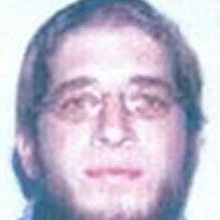
Extremists: Their Words. Their Actions.
Fact:
On April 3, 2017, the day Vladimir Putin was due to visit the city, a suicide bombing was carried out in the St. Petersburg metro, killing 15 people and injuring 64. An al-Qaeda affiliate, Imam Shamil Battalion, claimed responsibility.
Get the latest news on extremism and counter-extremism delivered to your inbox.